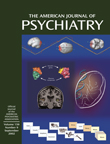The date was September 11, 2001. I was on a conference call with colleagues when my assistant brought me a note indicating that my wife had called. No sooner had I read the note than one of my colleagues said that he had just heard that the Pentagon was under attack. The news sounded preposterous, and I was oddly detached as we ended the call. I walked out of my office to find a group of colleagues and staff in my clinic glued to a television set. I stood and watched in horror with all of them as the World Trade Center buildings collapsed in front of our eyes.
Stunned by the events of that morning, I sat down with other faculty in my department to decide what we should do. Should we send everyone home and cancel our appointments? After all, the presence of NASA and the petroleum industry might make Houston a target. On the other hand, we might be needed in the clinic to deal with the traumatic reactions of our patients, who were witnessing these events along with us. We finally decided to stay put and be available to any and all who might need us.
Some patients arrived for their appointments as usual. Others stayed home. One of my patients came in that afternoon and told me that she had done nothing but watch television all day. I told her that I, too, had been watching the events unfold. She talked of the impact of the terrorist attacks upon her, and I talked about the impact on me. We described remarkably similar reactions and experienced a sense of connection. Paralysis, numbness, confusion, and shock all suffused the session and brought us closer together. The patient told me how frightened she was. I replied that I, too, was frightened.
Almost 6 months later, the events of that historic day had begun to fade from the foreground of our consciousness, and therapy was proceeding productively. The patient told me, however, that she felt she had never really dealt with the impact of September 11th on her. I asked her why she hadn’t discussed it more in our sessions. She told me that she was “freaked out” by how shaken I seemed to be by the attack. She had never seen me that way before. She looked me squarely in the eye and explained, “I count on you to be the Rock of Gibraltar for me. If you can’t handle something, I have no idea how I will handle it. So I decided not to bring it up, because I didn’t want to see you upset again.”
I was taken aback by her reaction. Our moment of connection on that dark September afternoon had consequences that I had not foreseen. The ordinary asymmetry of psychotherapy had been transformed into mutual self-disclosure during the worst disaster in modern American history. Her bulwark against anxiety, uncertainty, and existential dread had been brought down, along with the Twin Towers. Gibraltar had been shattered.
We went on to explore some of her reactions in greater detail. Our discussion led to some productive work on her need to idealize me. After she left the session, I reflected on whether I would have done it the same way again. Upon reflection, I realized that to contemplate that question implied that I actually had a choice. I knew better. Of course, I would do the same thing again. What if I had concealed my reaction to the trauma and proceeded as though I was only there to look at her feelings? The lack of authenticity in such a role might have been more damaging than my open reaction of horror to the events unfolding. My genuine reaction and candid disclosure were probably the lesser of the two evils. As Karl Menninger once taught me, “When in doubt, be human.”

